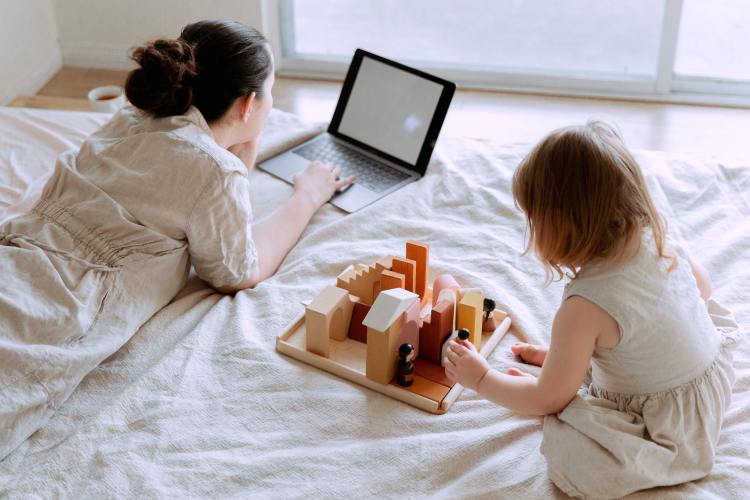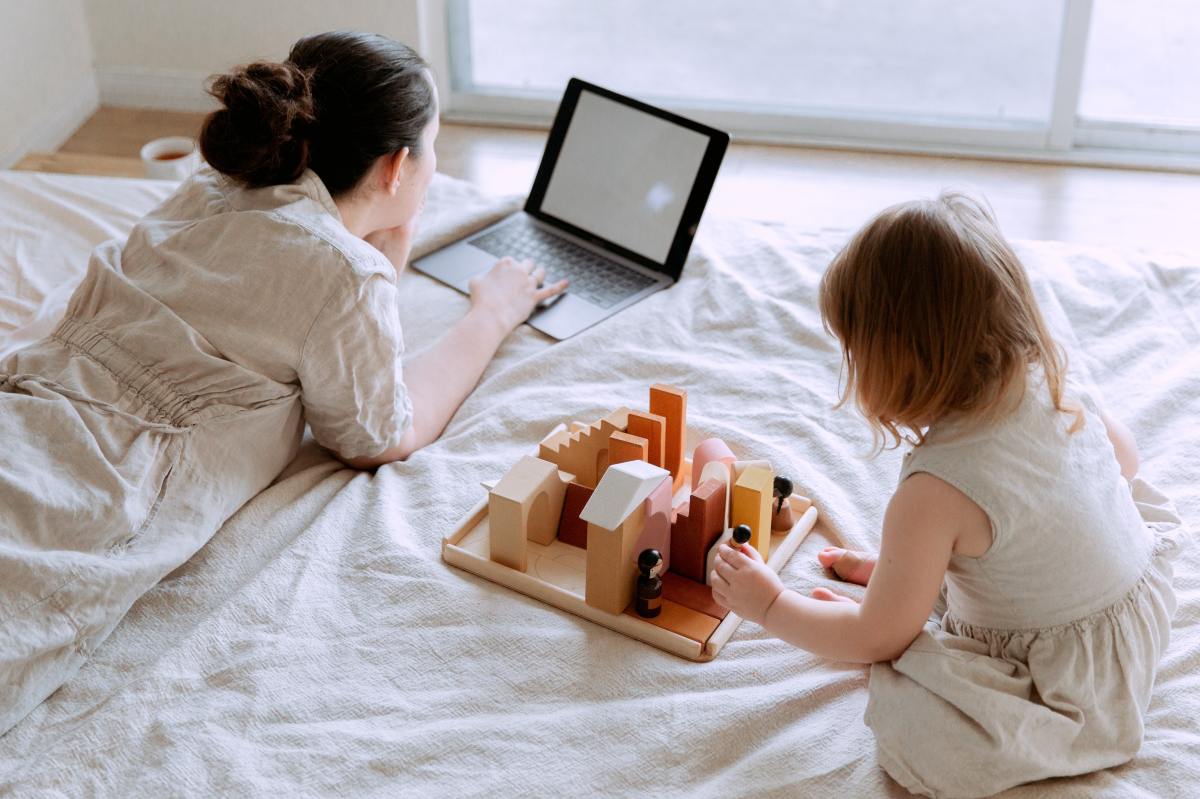Working from home (WFH) may seem like a dream come true in the beginning, but when you also have to manage the kids’ needs, home chores, and/or have to deal with co-workers who think being home means they can call you 24/7, the situation can quickly turn into a nightmare.
Here are some ways you can put in some order (and sanity) in your WFH set-up:
1. Set office hours and make sure everyone knows it

When you are working from your living room or bedroom, it’s easy for family members (especially kids) to assume that you are not working at all and just badger you for attention any time. The same is true for colleagues who think that there is nothing inappropriate with calling you up at midnight for a work-related query. Make it clear to workmates that you are only available during certain hours of the day, and that you will respect their time as well.
2. Establish your territory

Whether your workspace is a small table or a whole room (lucky you!), make sure it is used exclusively for work. This way, you can still separate “work life” from your “personal life.” In addition, furnish your space with pens, papers, and other materials that will be used solely for the “office.” This saves you the time (and stress) from constantly carrying materials back and forth, or misplacing them.
For your kids and other household members, instruct them that your working hours are sacred and you absolutely cannot be disturbed. Or if they do need to talk to you, they should knock first instead of barging in.
3. Discuss and delegate

If your spouse has free time to take over babysitting duties, perfect (don’t forget to return the favor when it’s his or her turn to be busy). If there are no other responsible adults around, have a serious discussion with your children beforehand about the importance of your “work hours”. This gives you peace and quiet to focus on your work but also the assurance that your children are safe and productive.
4. Manage your deadlines by breaking them into chewable amounts
It is easy to procrastinate when you are working from home, so resist the temptation. Break down large projects into smaller steps, and set deadlines to complete each stage; this will make the overall output less overwhelming to do.
5. Make a to-do list

This might sound pretty basic, but it works! Start each day with a list of the tasks you need to accomplish at home and for work. Rank them according to importance, and organize your day so that you finish these to-do’s as soon as possible. Should you run out of time to do the less urgent tasks, don’t stress! You can always do them tomorrow.
6. Dress the part (even if it’s just the top-half!)
Unless you are mandated to dress up (i.e. you need to do a video-chat with upper management), you can pretty much wear whatever you want at your home office. But while there is no law against wearing pajamas all day, it might be the very thing making you feel sluggish and unmotivated. Better to slip into something that’s comfortable but at the same time semi-professional, comb your hair, put on some makeup – you’ll end up feeling more inspired to work.
7. Keep the Water Cooler Breaks
Don’t you just miss that walk to the water cooler and the talks with your office buddies? Take virtual lunch or coffee breaks together, and chat about non-work related matters. This helps ease the feeling of isolation, and will make you look forward to “going to work.”
8. Actually, just take breaks in general!

You do not have to be chained at your desk the whole time. Take a snack break or do some stretches every now and then. Come back to work when you are feeling more relaxed and refreshed.
9. Clock out and “go home”
Because the office desk is just a few steps away from the bedroom, it’s tempting to just keep working because your think you can stop anytime (which is actually counterproductive). Ignore the urge to work overtime! When office hours are over, shut down your laptop, keep it away, and ready yourself for home duties so you can properly rest. Your mind and body will thank you for it.
10. Practice gratitude

At the end of the day, the an attitude of gratitude will set you up to a calmer and more positive mood. While our situations vary greatly at home, we must always focus on the now, everything that went right, and how we can be better and do better tomorrow!
With the COVID-19 pandemic showing no signs of letting up, working from home is now becoming the norm for many. The set-up will take some getting used to, but by prioritizing your needs and building your mental resilience, you can settle into a comfortable routine in no time.
How do you practice calmness and routines when working from home?
—
Written by Jac of MindNation

